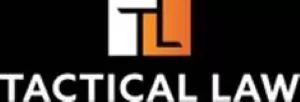On its website NetSuite, Inc. ("NetSuite), which is now owned by Oracle, touts that its "NetSuite SuiteSuccess is a total solution designed to manage all aspects of a business in a single system" and that "preconfigured, fixed-fee solutions allow customers to go live quickly, in a predicable time frame — and on budget." Many NetSuite customers enter into the subscription and professional services agreements with NetSuite believing that they have a fixed price contract, which will not require much of an investment of time or energy on their end to get up and running. They are wowed by the slick pre-sales presentations and demos, and don't understand that often the solution that is being touted in these discussions is not the base product, but instead is a solution with all the bells and whistles that may cost significantly more than what is being quoted. The fact is that the more a prospective customer wants to customize the software to fit its business, the more it will cost and the more time and effort it will take to implement, along with an increased chance of failure.
Oracle appears to be targeting small and medium size businesses with their SuiteSuccess offering. The Oracle/NetSuite sales team talks a good game, and the prospective customer is led to believe that the solution can be implemented quickly and within the fixed price fee quoted. Once the customer signs on the dotted line, often it is presented during contract performance with multiple change orders, which increase the total contract price and delays the ultimate "go live" date. Some customers end up giving up and wanting to terminate the contract and get a refund of monies paid to date. But given the terms of the standard contract, it is not so easy to get out of it and get a refund of fees paid.
So, what steps can companies considering contracting with Oracle
take pre-contract to attempt to mitigate the risk in case a dispute
with Oracle arises?
- Document in a detailed writing all pre-contract discussions. NetSuite will not allow prospective customers to record pre-sales pitch meetings. So instead, it is incumbent on the Oracle customer to take detailed notes of each meeting. It is very important to identify each participant in the meeting and their title. Note the time and date of the meeting as well. If a Powerpoint or other written document is presented at the meeting, ask for a copy. And write down in detail exactly what representations were made by each member of the NetSuite Sales team identifying the specific statement and who made the representation. This is important because later down the road if you get into a dispute and NetSuite doesn't provide the solution that it promised, you can point to specific factual statements that NetSuite made to your company to induce you to enter into the contract, which turned out not to be true. Be on the lookout for representations that could be construed as mere puffery, which are non-actionable and would not support a fraud claim. If a representation seems very general, follow-up and ask specific questions and write down the response. After the meeting review your notes, finalize, and email them to yourself that day. File the email away in a folder for reference later if a dispute arises.
- Keep copies of all NetSuite marketing materials that your company relied on in making its decision to go with NetSuite. Marketing materials, including portions of the NetSuite website and any description of the SuiteSuccess solution could be key to any legal case that you might decide to bring against NetSuite if it fails to deliver on its promises. With regard to the NetSuite website take screenshots of key portions of the site that you relied upon or print out the entire web page and record the date of the print-out or screenshot. These materials could end up being very important.
- Follow-up in writing after the demo with specific questions regarding features that are key to your decision to go with NetSuite and make sure they are included in the total price quoted. No doubt about it the NetSuite demos are slick and look great. If you identify key features from the demos that are important to your company and are a big reason that you decide to go with NetSuite, follow-up and request specific written confirmation that the feature is included in the price you are being quoted. When you get the Estimate Form, ask for confirmation in writing as to where in the Estimate Form that feature is included.
- Confirm in writing that your NetSuite team will be located in the U.S. if that is important to you. We are aware that sometimes NetSuite will assign a foreign based team in India or elsewhere rather than a team located in the United States. This can lead to communication problems. If it is important to your company to have a U.S. based team, then you will want to confirm in writing with NetSuite that all team members will be based in the United States, and that the U.S. based team is included in the price quoted.
- Review all contract related documents carefully including Estimate Forms and Professional Services Agreements and download and save all webpages that are URLs or hyperlinks. As mentioned earlier, Oracle seems to be targeting small and medium sized businesses with their SuiteSuccess offering. Many such businesses do not have in-house legal departments who are fly specking the agreements, and as a result, the small business owners often miss some important contract related documents. For example, on the second to last page of the Estimate Form of current SuiteSuccess contract paper, Paragraph A.1 is entitled "Agreement". In the second line of the first paragraph there is a hyperlink to a Subscription Services Agreement. The hyperlink is not set off in a different color or emphasized in any way, and frankly in our opinion seems to be disguised on purpose. However, if you hover your cursor over the url, the reader will find that it is a hyperlink. Clicking on that hyperlink will take you to the Oracle website, and with a few more clicks you will end up at the current Subscription Services Agreement ("SSA"). It is a good idea to match the date of the agreement from the Estimate Form to the footer of the SSA. If the dates are different, you will need to continue to search the Oracle website to obtain the archived version of the SSA with your date. The SSA is the Oracle agreement that contains the termination, warranty, term, integration and other key clauses, many of which are one sided and benefit Oracle. But many NetSuite customers don't even realize that the agreement is part of the contract, as it is not sent by Oracle as a PDF that the customer needs to execute or agree to like the other documents. NetSuite customers may have legal arguments under California law that the contract accessed by the hidden hyperlink is unenforceable. To our knowledge, the issue has not yet been litigated in the context of the NetSuite SuiteSuccess contracts in either California state or federal court.
The content of this article is intended to provide a general guide to the subject matter. Specialist advice should be sought about your specific circumstances.


